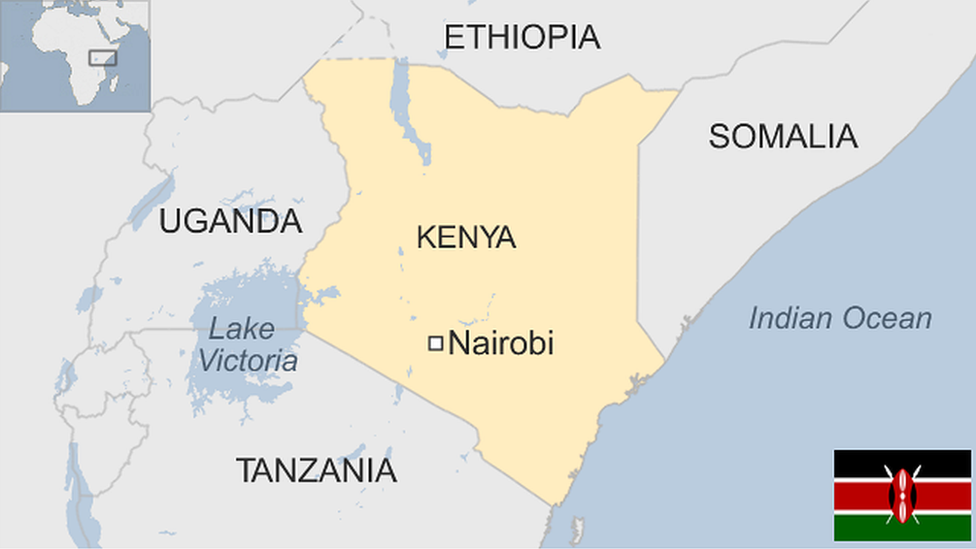Mau Mau struggle for recognition at home and abroad
- Published
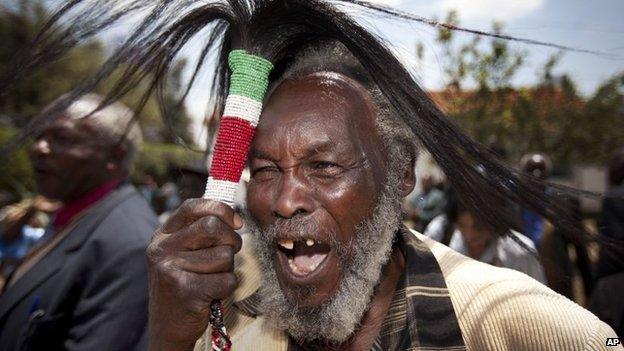
From the reaction of the Mau Mau veterans in Kenya, you might have been forgiven for thinking they had won their torture case against the UK government.
George Morara, of the Kenya Human Rights Commission (KHRC), took the call on his mobile phone.
Around him sat a group of elderly Kenyans, mostly men but some women too.
When the announcement from London came through that they could proceed to a full trial despite the time elapsed, several dozen lined faces, etched from the experience of a long and often hard life, broke into beaming smiles.
Octogenarians jumped up from their seats, linked arms and performed an impromptu dance through the gardens of the KHRC, which has been helping with claimants with their case which dates back to the Mau Mau uprising in the 1950s.
"We are very pleased," said Wambugu wa Nyingi, one of the three Kenyans who brought the case.
He had been subjected to vicious beatings while in detention under colonial rule.
"I hope that the British government will now pay us compensation."
But these veterans of Kenya's liberation struggle have received little support at home.
Jailed at independence
"It's pathetic really," says H S K Mwaniki, a historian and researcher of the Mau Mau period.
Mr Mwaniki is referring to the way in which many Mau Mau veterans believe their contribution to Kenya's independence movement has been ignored.
The reason, he believes, is to be found in the birth of independent Kenya in 1963.
Many of the country's new leaders had been strongly associated not with the Mau Mau, but with the Home Guard, a force that fought on behalf of the colonial authorities.
"When independence came, they were the ones in place," he says.
"Because most of the Kikuyu, the Embu and the Meru [three ethnic communities which supplied the bulk of Mau Mau fighters] who were against the British were either in jails, in detention, or completely suppressed. They could not raise a finger."
Official indifference towards Mau Mau veterans started with Jomo Kenyatta, Kenya's first president, and continued under his successor, Daniel Arap Moi.
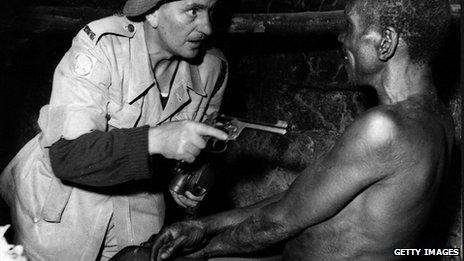
Thousands of Mau Mau suspects were arrested and detained in prison camps
The movement was banned as an organisation.
It was not until 2003, with the election of Mwai Kibaki, that the Mau Mau was officially recognised as a legal entity.
But even today, government support has been patchy.
"Now you see it, now you don't," says George Morara of the KHRC.
In the current case, the British government initially tried to argue that, at independence, responsibility for whatever atrocities may have been committed passed not to London, as the former colonial master, but to the new Kenyan authorities.
"That raised the red flag," says Mr Morara.
Public pledges of support followed, even if that support has come in verbal rather than financial form.
Mr Morara says there are a number of reasons for the softening of the government stance towards the Mau Mau.
One factor is a new generation of Kenyan politicians which came in after the end of the Moi era
"They wanted to get rid of the old guard, to be seen to be different," he says.
"Many politicians from central Kenya have parents who were in some way involved [with the Mau Mau].
"They want to try to amend for some of those past things that were swept under the carpet."
Another reason is simply the passage of time. After half a century, the darker secrets of the Mau Mau uprising have lost their power to seriously threaten political interests.
And yet the case has received little coverage in the Kenyan media.
At the offices of the KHRC on Friday, foreign journalists outnumbered local ones.
The veterans and victims of this bloody chapter in Kenya's history are still struggling for recognition, both at home and abroad.
- Published5 October 2012
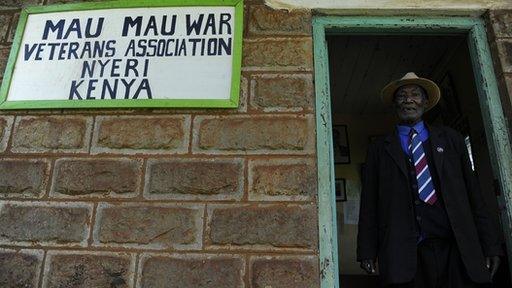
- Published7 April 2011
- Published21 July 2011
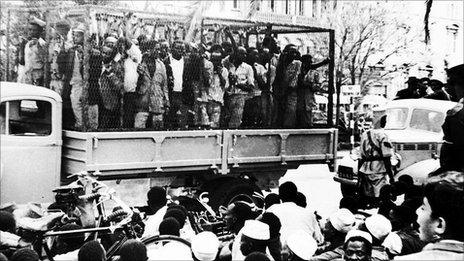
- Published4 July 2023
